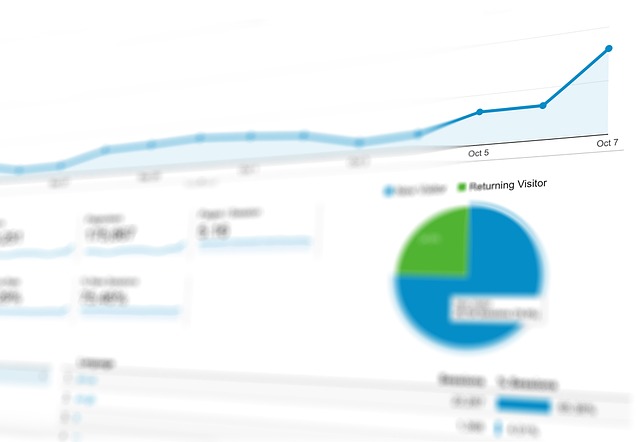In this article, we will explore why Salesforce CRM (Customer Relationship Management) is an excellent choice for small businesses. As a powerful and widely used CRM platform, Salesforce offers a range of features and benefits that can significantly enhance small businesses’ operations and growth. By leveraging Salesforce’s capabilities, small businesses can streamline their sales processes, improve customer engagement, and drive overall business success. Join us as we delve into the key reasons why Salesforce CRM is a valuable tool for small businesses.
Table of Contents:
3. Reason 1: Centralized Customer Data and Contact Management
4. Reason 2: Sales Process Optimization and Automation
5. Reason 3: Improved Customer Engagement and Communication
6. Reason 4: Analytics and Reporting for Informed Decision-Making
7. Reason 5: Scalability and Customization to Fit Business Needs
8. Reason 6: Collaboration and Team Productivity
9. Reason 7: Integration with Other Business Systems and Applications
10. Reason 8: Mobile Accessibility and Remote Work Support
11. Reason 9: Customer Service and Support Management
12. Reason 10: Ecosystem and Community Support
13. Conclusion
14. FAQs
KeyPoint / Summary
Salesforce CRM offers a wide range of features and benefits that make it an excellent choice for small businesses. From its customizable and scalable nature to comprehensive customer data management, sales and lead management, marketing automation, and more, Salesforce empowers small businesses to streamline their operations, improve customer relationships, and drive growth.
What is Salesforce CRM?

Salesforce CRM, or Customer Relationship Management, is a cloud-based software platform that enables businesses to manage their customer interactions, sales processes, and marketing campaigns in a centralized and efficient manner. It provides a suite of tools and features designed to help businesses build and maintain strong customer relationships, streamline sales processes, and make data-driven decisions. Salesforce CRM offers a wide range of functionalities, including contact management, lead tracking, opportunity management, email automation, analytics, and reporting.
At its core, Salesforce CRM is built on a customer-centric approach, allowing businesses to gain a 360-degree view of their customers and prospects. It captures and stores customer data, interactions, and preferences, providing valuable insights that can be used to personalize marketing efforts, deliver exceptional customer service, and drive sales conversions.
Salesforce CRM is a cloud-based solution, which means that all data is securely stored in the cloud and accessible from anywhere with an internet connection. This enables businesses to access real-time information, collaborate effectively across teams, and support remote work environments. The platform is highly scalable and customizable, making it suitable for businesses of all sizes and industries.
Salesforce CRM offers various editions and pricing plans, allowing businesses to choose the one that best fits their needs and budget. It provides a user-friendly interface, intuitive navigation, and a robust ecosystem of apps, integrations, and community support.
Overall, Salesforce CRM serves as a comprehensive solution for small businesses to manage their customer relationships, optimize sales processes, and drive business growth. It offers a range of features and benefits that can revolutionize the way small businesses operate and interact with their customers. In the following sections, we will explore the reasons why Salesforce CRM is particularly well-suited for small businesses.
Reason 1: Centralized Customer Data and Contact Management

Salesforce CRM offers small businesses the advantage of centralizing customer data and streamlining contact management. This feature provides a unified platform where businesses can store and organize essential customer information, including contact details, communication history, and purchase history. The centralized database created by Salesforce facilitates easy access to critical customer data and enhances communication and collaboration across teams.
The centralized customer data and contact management provided by Salesforce CRM offer several benefits. Firstly, having a unified database ensures that all customer information is stored in a single location, making it easily accessible to authorized team members. This eliminates the need for manual data entry into multiple systems and reduces the risk of data duplication or inconsistency. Moreover, with all customer data readily available, businesses can gain a holistic view of their customers, enabling better understanding of their needs, preferences, and purchase patterns.
Secondly, centralized customer data enhances communication and collaboration across teams. Sales, marketing, and customer service teams can access the same customer information, allowing for a seamless flow of information and coordinated efforts. This leads to improved customer interactions, as team members have access to the most up-to-date and relevant information about each customer.
However, it’s important to consider the pros and cons of centralized customer data management. While it provides numerous benefits, businesses must also ensure compliance with data protection regulations and take measures to safeguard customer data. It’s essential to implement appropriate security measures, such as data encryption and access controls, to protect customer information from unauthorized access or breaches.
In summary, Salesforce CRM’s centralized customer data and contact management feature offers small businesses the advantage of streamlined data storage, easy access to customer information, and improved collaboration. It’s crucial to weigh the benefits against the need for data protection and compliance with relevant regulations to make informed decisions regarding customer data management.
Reason 2: Sales Process Optimization and Automation

Salesforce CRM provides small businesses with powerful tools for optimizing and automating sales processes. With Salesforce, businesses can effectively track leads, manage opportunities, and monitor the sales pipeline. The platform’s automation features offer significant advantages by streamlining repetitive tasks, ensuring consistency, and increasing overall sales productivity.
Salesforce CRM offers various automation capabilities that enhance sales process optimization. For instance, email templates allow sales representatives to quickly send personalized and professional emails to prospects, saving time and maintaining brand consistency. Task reminders ensure that important sales activities and follow-ups are not overlooked, improving response times and customer engagement. Workflow rules enable businesses to automate specific actions based on predefined criteria, such as assigning tasks or updating fields, reducing manual effort and enhancing efficiency.
The ability to automate sales processes brings several benefits to small businesses. By reducing manual tasks and streamlining workflows, sales teams can focus more on engaging with prospects and closing deals. Automation ensures that critical activities are executed consistently and in a timely manner, minimizing human error and enhancing customer satisfaction. Moreover, the visibility provided by Salesforce’s sales automation features allows sales managers to monitor performance, identify bottlenecks, and make data-driven decisions to optimize sales strategies.
However, it’s crucial to carefully design and configure automation workflows to align with specific business needs. The customization and setup of automation processes should be based on a thorough understanding of the sales workflow and objectives. Proper training and ongoing monitoring are also important to ensure that the automation features are utilized effectively and deliver the desired results.
In summary, Salesforce CRM’s sales process optimization and automation features empower small businesses to track leads, manage opportunities, and streamline sales activities. Automation capabilities reduce manual effort, increase efficiency, and improve overall sales productivity. Proper design, configuration, and training are essential to maximize the benefits of sales process automation and align it with specific business requirements.
Reason 3: Improved Customer Engagement and Communication

Effective customer engagement is vital for small businesses, and Salesforce CRM provides various tools to facilitate this process. The platform offers features like email marketing, social media integration, and personalized customer communications. These tools enable small businesses to reach out to customers, nurture relationships, and deliver personalized experiences.
One of the key benefits of Salesforce CRM is its email marketing capabilities. Businesses can create targeted email campaigns, sending personalized emails, newsletters, and promotional offers based on customer preferences and behavior. This enables businesses to communicate directly with their customers and provide them with relevant and timely information.
Additionally, Salesforce CRM integrates seamlessly with social media platforms, allowing businesses to engage with customers on popular networks like Facebook and Twitter. By monitoring and responding to customer inquiries, comments, and reviews, businesses can demonstrate their commitment to customer satisfaction and build a positive brand image.
By leveraging Salesforce’s customer engagement capabilities, small businesses can improve customer satisfaction, increase loyalty, and drive repeat sales. Engaging customers on a personal level, addressing their needs, and providing prompt and helpful support can leave a lasting impression and strengthen the customer-business relationship.
However, it’s important to consider the potential drawbacks of enhanced customer engagement. Careful segmentation and targeting should be implemented to avoid overwhelming customers with excessive communication. Businesses need to strike a balance and ensure that their interactions are meaningful and valuable to customers, rather than being perceived as spam or unwanted messages.
In conclusion, Salesforce CRM’s tools for improved customer engagement and communication empower small businesses to connect with their customers effectively, nurture relationships, and deliver personalized experiences. When utilized strategically and responsibly, these capabilities can lead to increased customer satisfaction, loyalty, and ultimately, business growth.
Reason 4: Analytics and Reporting for Informed Decision-Making

Salesforce CRM offers powerful analytics and reporting capabilities that empower small businesses to gain valuable insights from their sales, marketing, and customer data. Through customizable dashboards, reports, and real-time analytics, businesses can track key performance indicators, monitor sales trends, and identify areas for improvement. Salesforce enables data-driven decision-making, allowing businesses to make informed choices that drive growth and profitability. However, it is crucial to ensure data accuracy and integrity and interpret analytics in the context of specific business goals.
With Salesforce’s analytics and reporting features, businesses can transform raw data into actionable insights. The customizable dashboards provide a visual representation of relevant metrics and data points, giving a comprehensive overview of business performance at a glance. By drilling down into specific reports, businesses can dive deeper into their data to uncover trends, patterns, and correlations that can inform strategic decisions.
Real-time analytics enable businesses to stay agile and respond quickly to changing market conditions. With access to up-to-date information, businesses can identify emerging opportunities, address issues promptly, and optimize their sales and marketing strategies. This proactive approach helps businesses stay ahead of the competition and maximize their revenue potential.
However, it is essential to ensure the accuracy and integrity of the data being analyzed. Regular data cleansing and validation processes should be in place to maintain data quality. Additionally, interpreting analytics requires considering the context of specific business goals and objectives. It’s important to understand the limitations and biases that may be present in the data and interpret the findings accordingly.
In summary, Salesforce CRM’s analytics and reporting capabilities provide small businesses with the tools to gain valuable insights from their data. By leveraging customizable dashboards, reports, and real-time analytics, businesses can make informed decisions that drive growth and profitability. Ensuring data accuracy and interpreting analytics in the context of business goals are crucial elements for effective decision-making using Salesforce CRM.
Reason 5: Scalability and Customization to Fit Business Needs

Salesforce CRM provides small businesses with scalability and flexibility to adapt to their evolving needs. The platform offers a wide array of customizable features, modules, and extensions that can be tailored to suit specific business requirements. This scalability allows businesses to start with the essential features and gradually expand as they grow. Salesforce can accommodate increased data volumes, user accounts, and complex business processes.
The ability to customize Salesforce CRM is a significant advantage for small businesses. They can configure the system to align with their unique workflows, terminology, and industry-specific needs. Customization options include creating custom objects, fields, and workflows, designing personalized dashboards and reports, and integrating with other business systems.
Scalability and customization go hand in hand, enabling businesses to adapt Salesforce to their changing requirements. As a business expands, Salesforce can scale alongside it, ensuring that the CRM system continues to support increased data storage, user demands, and business complexities.
However, it is important to consider the trade-offs associated with extensive customization. Extensive customization may lead to increased complexity, longer implementation times, and higher costs. It is crucial to carefully evaluate the business’s long-term goals and requirements to strike a balance between customization and out-of-the-box functionality.
In summary, Salesforce CRM offers small businesses the scalability and customization needed to fit their unique needs. The platform can scale alongside business growth, accommodating increased data volumes and user demands. Customization options allow businesses to tailor Salesforce to their specific workflows and industry requirements. However, businesses should carefully consider the complexity and costs associated with customization, ensuring that modifications align with long-term business goals.
Reason 6: Collaboration and Team Productivity

Salesforce CRM excels at fostering collaboration and enhancing team productivity through its comprehensive set of collaborative features and integrated communication tools. It provides a platform for teams to easily share customer information, collaborate on deals, and track progress in real time. Salesforce’s built-in social collaboration platform, Chatter, enables seamless communication and knowledge sharing within the organization. By leveraging these collaborative capabilities, small businesses can enhance teamwork, streamline processes, and drive overall productivity.
One of the key benefits of Salesforce CRM is the ability to centralize customer information, making it accessible to team members across different departments. This ensures that everyone has a holistic view of customer interactions, enabling more informed and coordinated efforts. Teams can collaborate on leads, opportunities, and customer cases, sharing updates and insights in real time. This level of collaboration enhances efficiency, eliminates duplication of efforts, and improves overall customer service.
The Integrated communication tools within Salesforce further facilitate collaboration and productivity. Features like email integration, task assignments, and notifications enable seamless communication between team members, ensuring that everyone is on the same page and aware of important updates. Salesforce also supports integration with popular productivity tools like Microsoft Outlook and Google Workspace, further enhancing collaboration and streamlining workflows.
However, it is essential to establish proper access controls and permissions within Salesforce CRM. Sensitive data should be protected, and user permissions should be defined to ensure that only authorized individuals can access and modify specific information. This helps maintain data integrity and security while enabling effective collaboration.
In summary, Salesforce CRM’s collaborative features and integrated communication tools empower small businesses to enhance teamwork and drive productivity. By centralizing customer information, facilitating real-time collaboration, and providing seamless communication channels, Salesforce enables efficient and coordinated efforts. However, proper access controls and permissions should be established to protect sensitive data and ensure effective collaboration within the organization.
Reason 7: Integration with Other Business Systems and Applications

Salesforce CRM provides small businesses with robust integration capabilities, enabling seamless connectivity and data synchronization with other essential business systems and applications. This integration capability allows businesses to streamline data flow, eliminate manual data entry, and enhance overall operational efficiency.
By integrating Salesforce with tools such as email clients, marketing automation platforms, accounting software, and e-commerce platforms, businesses can achieve a unified view of their customer data and streamline their workflows. For example, integrating Salesforce with an email client allows for automatic email tracking and syncing of communications, ensuring that all customer interactions are captured and easily accessible within the CRM. Similarly, integrating Salesforce with a marketing automation platform enables the seamless transfer of leads and campaign data, enhancing marketing effectiveness and ROI.
When integrating Salesforce with external applications, it is important to consider the compatibility of systems and the need for proper configuration. It is essential to assess the availability of pre-built connectors or APIs that facilitate integration and ensure that the integration aligns with the business’s specific requirements.
Data synchronization can be a challenge when integrating multiple systems. It is important to define clear data mapping and establish synchronization rules to ensure that data remains consistent across different applications. Regular monitoring and maintenance are necessary to address any data discrepancies or synchronization issues that may arise.
In summary, Salesforce CRM’s integration capabilities enable small businesses to connect and synchronize data with other critical business systems and applications. This integration streamlines data flow, eliminates manual data entry, and enhances operational efficiency. However, it is crucial to consider system compatibility, proper configuration, and data synchronization challenges to ensure successful integration and a unified view of customer data across the organization.
Reason 8: Mobile Accessibility and Remote Work Support

Salesforce CRM recognizes the importance of mobile accessibility in today’s work environment and offers a mobile application that enables small business teams to access crucial customer information, track activities, and manage tasks from anywhere. This mobile accessibility supports remote work and enhances productivity for on-the-go professionals.
The Salesforce mobile application empowers sales representatives to engage with customers while in the field, providing real-time access to customer data, sales opportunities, and communication history. This mobility allows sales reps to respond promptly to customer inquiries, update records on the spot, and stay connected with team members, improving overall customer satisfaction and sales effectiveness.
In addition to sales teams, other departments such as service and support can also benefit from mobile accessibility. Service agents can access case information, communicate with customers, and provide timely updates, ensuring efficient and responsive customer service. The ability to work remotely and access Salesforce from mobile devices enables seamless collaboration among distributed teams, regardless of their physical location.
While mobile accessibility offers significant advantages, it’s crucial to prioritize data security. Salesforce provides robust security measures, including strong authentication methods and encrypted communication, to protect sensitive information when accessing Salesforce from mobile devices. It’s essential for businesses to enforce security policies, such as enabling two-factor authentication and educating users about best practices for mobile device security.
In summary, Salesforce CRM’s mobile accessibility through its mobile application supports remote work and enhances productivity for small businesses. It enables teams to access customer information, track activities, and collaborate on the go, improving customer engagement and overall operational efficiency. However, businesses must prioritize data security by implementing appropriate security measures to protect sensitive information when accessing Salesforce from mobile devices.
Reason 9: Customer Service and Support Management

Salesforce CRM provides small businesses with powerful tools to manage customer service and support interactions effectively. With Salesforce’s Service Cloud, businesses can centralize customer service inquiries, track cases, and deliver timely resolutions, ultimately enhancing the overall customer experience.
By leveraging Salesforce’s customer service capabilities, small businesses can streamline their support processes and provide personalized assistance to customers. The platform enables businesses to create a comprehensive view of customer interactions, including previous cases, communication history, and relevant customer data. This consolidated information empowers support agents to provide tailored and efficient support, resulting in faster issue resolution and increased customer satisfaction.
Salesforce’s Service Cloud also includes robust ticketing and case management features, allowing businesses to track and prioritize support requests. This ensures that customer inquiries are handled promptly and efficiently, reducing response times and improving overall service quality.
Furthermore, Salesforce enables businesses to measure and track customer satisfaction metrics, such as Net Promoter Score (NPS) or customer feedback ratings. These insights provide valuable feedback for businesses to identify areas for improvement and make data-driven decisions to enhance their customer service operations.
However, it’s important for small businesses to consider the resource requirements for implementing effective customer service management on Salesforce. Adequate staffing, training, and ongoing support are essential to ensure that support teams can utilize the platform effectively and deliver the desired level of service.
In conclusion, Salesforce CRM’s customer service and support management capabilities enable small businesses to streamline their support processes, deliver personalized assistance, and track customer satisfaction. By leveraging Salesforce’s Service Cloud, businesses can enhance the overall customer experience, build stronger customer relationships, and drive long-term business success.
Reason 10: Ecosystem and Community Support

Salesforce has cultivated a vibrant ecosystem comprising partners, developers, and an active community that greatly contributes to its growth and development. This ecosystem offers small businesses a plethora of valuable resources, including third-party apps, integrations, and extensions, which can further enhance the functionality of Salesforce CRM. By leveraging this ecosystem, small businesses can discover specialized solutions, seek expert advice, and access additional support and training to optimize their Salesforce experience.
Engaging with the Salesforce community provides small businesses with access to a wealth of collective knowledge, best practices, and networking opportunities. Business owners and professionals can connect with like-minded individuals, industry experts, and Salesforce enthusiasts to exchange ideas, share experiences, and gain insights into maximizing the value of Salesforce CRM for their specific needs. This collaborative environment fosters innovation, problem-solving, and continuous learning, enabling businesses to stay ahead in a rapidly evolving business landscape.
However, it is crucial for small businesses to carefully evaluate the credibility and compatibility of third-party solutions offered within the Salesforce ecosystem. While there are numerous beneficial apps and integrations available, it is important to ensure that they align with the specific needs and goals of the business. Thorough research, reviews, and compatibility assessments should be conducted to choose reliable and effective solutions that seamlessly integrate with Salesforce CRM.
In conclusion, Salesforce’s ecosystem and community support offer small businesses a vast array of resources and networking opportunities to enhance their Salesforce CRM experience. By leveraging the collective knowledge and expertise of the Salesforce community, businesses can tap into innovative solutions, industry best practices, and valuable connections, ultimately driving their growth and success.
Conclusion
Salesforce CRM offers a wide range of features and benefits that make it an excellent choice for small businesses. From centralized customer data management and sales process optimization to improved customer engagement and collaboration, Salesforce provides a comprehensive solution to enhance business operations and drive growth. With its scalability, customization options, and integration capabilities, Salesforce can adapt to the evolving needs of small businesses and support their long-term success. Additionally, the extensive ecosystem and community support contribute to the richness of Salesforce CRM and provide valuable resources for small businesses to leverage. By harnessing the power of Salesforce CRM, small businesses can streamline their processes, improve customer relationships, and achieve their business objectives.
FAQs
Question 1: How much does Salesforce CRM cost for small businesses?
Answer: The cost of Salesforce CRM for small businesses varies based on the specific requirements and the number of users. Salesforce offers different editions and pricing plans, allowing businesses to choose the one that best fits their needs and budget. It’s recommended to consult with Salesforce sales representatives to get accurate pricing details for your business.
Question 2: Can Salesforce CRM be integrated with other software and applications?
Answer: Yes, Salesforce CRM provides extensive integration capabilities. It can be seamlessly integrated with various software and applications commonly used by small businesses, such as email clients, marketing automation tools, accounting software, and e-commerce platforms. Integration allows for data synchronization, streamlined workflows, and enhanced operational efficiency.
Question 3: Is Salesforce CRM suitable for businesses in any industry?
Answer: Yes, Salesforce CRM is designed to cater to businesses across industries. It offers a versatile platform that can be customized and configured to meet the specific needs of various industries, including retail, manufacturing, finance, healthcare, and more. Salesforce provides industry-specific solutions and features to address the unique requirements of different sectors.
Question 4: Can Salesforce CRM support remote work and mobile accessibility?
Answer: Absolutely. Salesforce CRM provides a mobile application that enables remote work and mobile accessibility. The mobile app allows users to access customer data, manage tasks, and collaborate with team members while on the go. It supports the changing work landscape and empowers sales teams to stay connected and productive from any location.
Question 5: What kind of customer support does Salesforce provide for small businesses?
Answer: Salesforce offers comprehensive customer support for small businesses through various channels. It provides online documentation, training resources, and a robust community platform where users can seek help, share knowledge, and connect with experts. Additionally, Salesforce offers different levels of customer support plans, including phone and chat support, to ensure businesses receive the assistance they need.
As a powerful CRM platform, Salesforce CRM equips small businesses with the tools and capabilities necessary to streamline operations, enhance customer relationships, and drive growth. By leveraging its features and benefits, small businesses can optimize their sales processes, improve customer engagement, and make informed decisions based on data-driven insights. Salesforce CRM offers scalability, customization, and integration options to accommodate the unique needs of small businesses. With its ecosystem and community support, Salesforce provides a vibrant and collaborative environment for small businesses to thrive.
